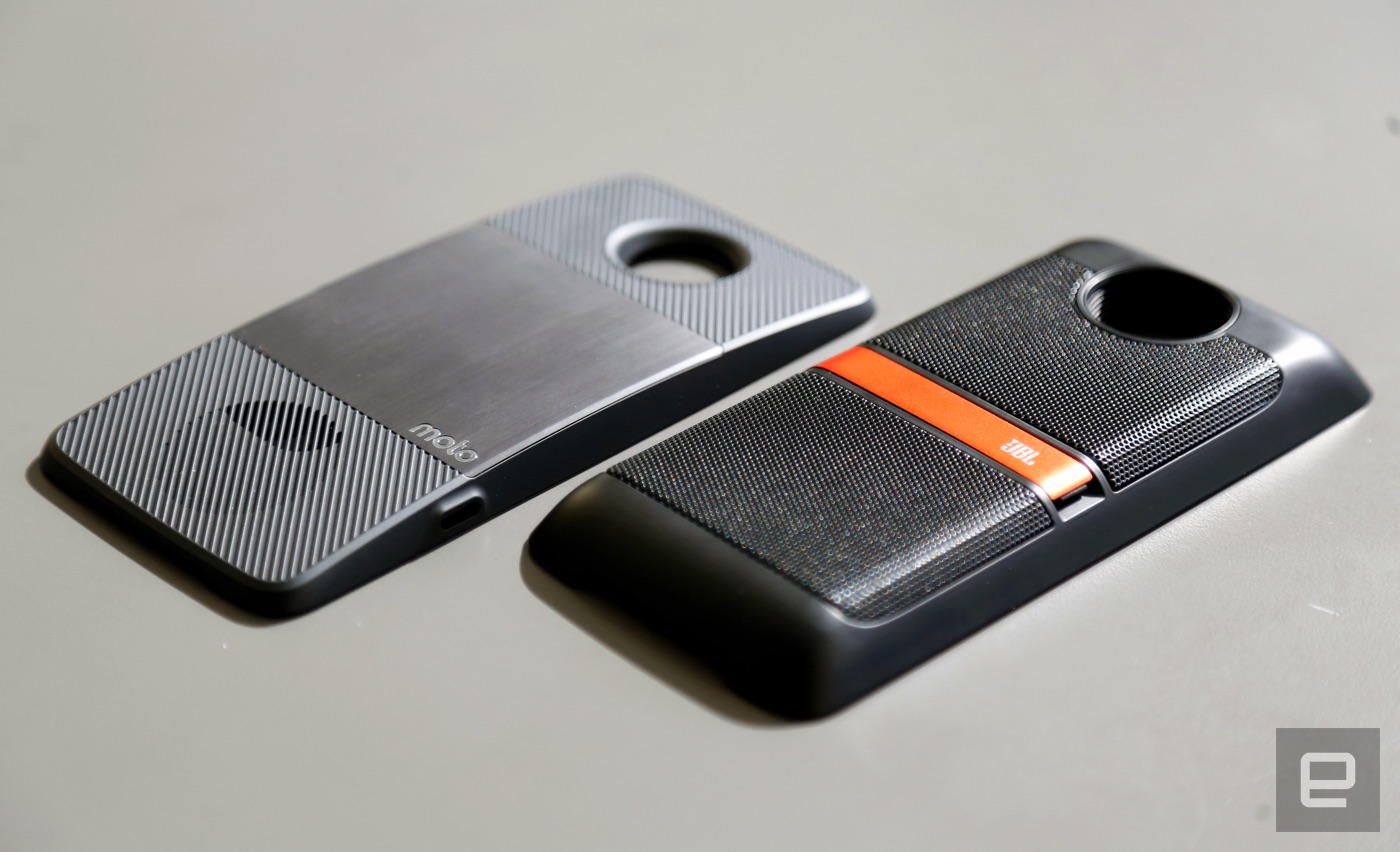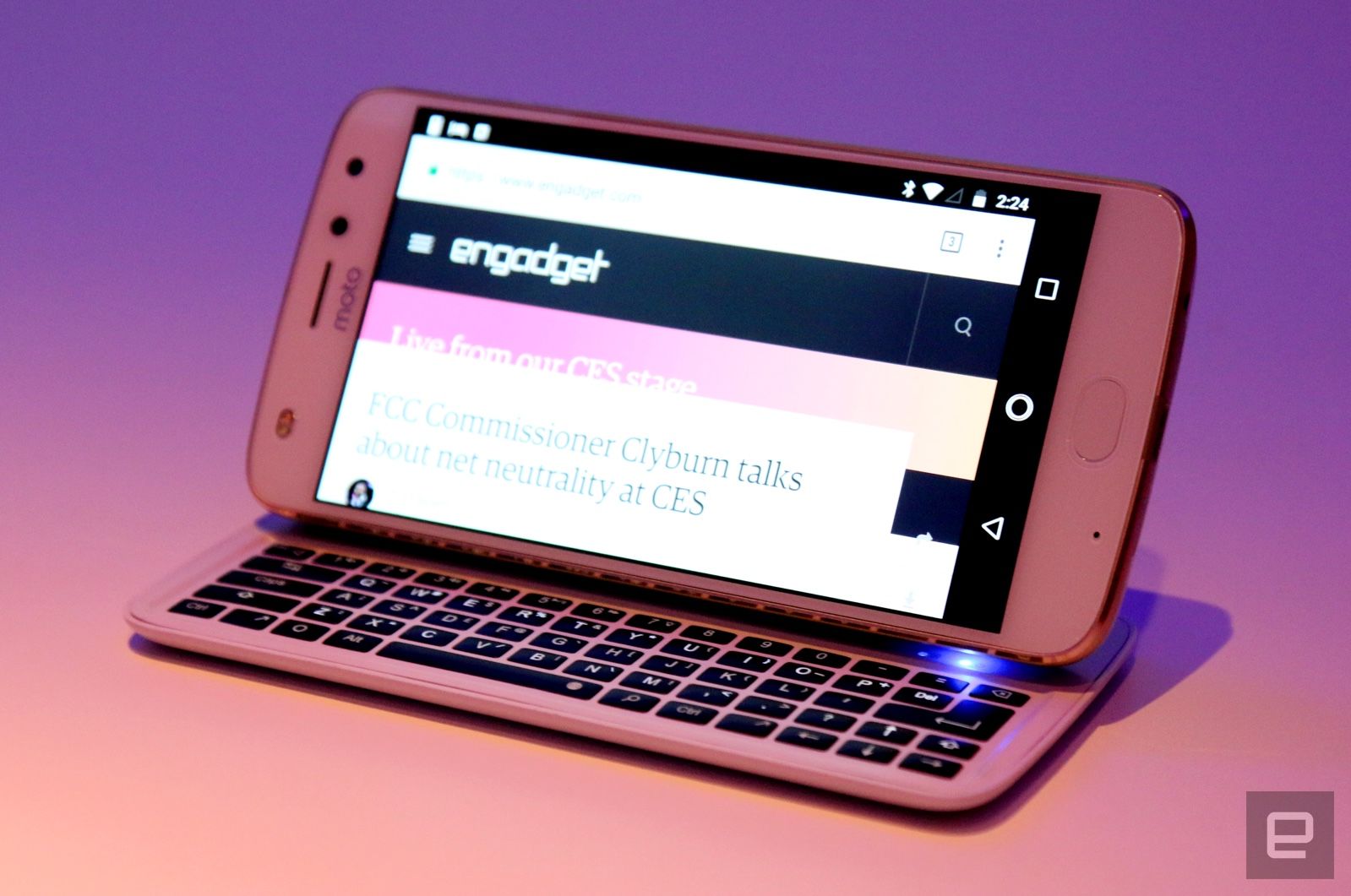 Two years ago, Lenovo-owned Motorola embarked on a grand plan to build modular smartphones that weren't cumbersome. It worked. Moto Mods are accessories that magnetically attach to the company's Moto Z smartphones, and they let people easily expand their phones' feature sets. And later this week, we're expecting Motorola to unveil what might be its most ambitious Mod yet: a 5G modem for high-speed data. (Never mind the fact that, as of this writing, there are no commercially accessible 5G networks in the US.) The brand's execs first started talking about the possibility of a 5G mod in late 2016, and the idea of adding next-generation wireless performance to an existing smar tphone is as enticing as ever. Here's the thing, though: that 5G mod has clearly been in the works for a while. In some ways, the idea belonged to a very different company. And in the time since the idea was first floated, Motorola seems to have grown less interested in building novel experiences through Moto Mods. 
Remember its ambitious $249 projector? Or the full-on replacement camera Motorola built with the folks at Hasselblad? Those were pricey niche accessories that debuted alongside the very first Moto Z phones, and they spoke to the very real potential of the Moto Mod concept. The phone you bought might very well get better over time. Since those early days, however, we've seen Motorola either stumble or fall back on more conventional (though potentially more lucrative) accessories. You can stick a Moto Z into a game controller (because no one has ever done that before). You can also turn a Moto Z into an Amazon Echo of sorts, but, considering its $149 asking price, you're better off buying something like an Echo Show. (Or, you know, five Echo Dots.) Most recently, Motorola saw fit to make its own versions of existing battery and speaker mods, presumably to rake in cash it otherwise would've had to share with partners like JBL and Incipio. There's nothing wrong with a smartphone brand focusing on accessories that most of its users would find valuable. It's just that the grand ambitions that seemed to fuel the Moto Z's heady early days have given way to pure pragmatism. 
For what it's worth, Motorola insisted to Engadget in an interview earlier this year that, between its in-house efforts, partnerships with existing accessory makers and third-party development, new Moto Mods will continue to hit stores. While those partnerships continue to bear the occasional fruit -- last year's Polaroid Mod was actually pretty cool -- developers have learned that bringing such accessories to market can be tricky. Consider Livermorium Labs, the makers of a physical QWERTY keyboard Mod that hearkens back to the glory days of old smartphones. I played with it for a bit at CES earlier this year and, despite some pre-production flimsiness, it seemed to get the job done. Fast-forward a few months and the challenges of building a Mod became apparent on the company's Indiegogo page. In additional to the usual difficulties that come with producing new hardware from scratch, founder Liangchen Chen pointed out problems in the company's relationship with Motorola: the original Moto Mod team Livermorium worked with "changed completely" in April, and it took Moto a few weeks to re-establish its support for the startup. For a while, things looked grim.  Chris Velazco/Engadget "We did not take a penny from Moto to develop this product," Chen wrote. "And now we could not even get any sales support, for the product that we put a whole year's efforts and time." While the situation was eventually resolved, Chen's string of updates speak to the trouble that small organizations sometimes have when dealing with huge entities like Motorola and Lenovo. Crafting hardware is difficult enough, and it becomes even more problematic when you've got this many hoops to jump through. And Livermorium wasn't alone. Motorola put together a "Transform the Smartphone" Mod competition with Indiegogo last year, and a company called Digiframe was one of two companies chosen to receive up to $1 million in funding from Lenovo Capital for its secondary e-ink display concept. The team continued to make progress through at least July 2017, but Digiframe had to discontinue its work because of "slow/no reaction from Motorola and Lenovo to provide further funding for development." Motorola's approach to modular smartphones is the most elegant I've seen, but elegance isn't nearly as valuable as vision, execution and commitment to its partners. I hope Moto continues to stick it out with its Mods, but who knows. As promised, Moto has built an ecosystem of Mods for three generations of smartphones, and I couldn't blame the company if it decided to finally pull the plug on its grand experiment.
via Engadget RSS Feed https://ift.tt/2M2KPGA |
Comments
Post a Comment